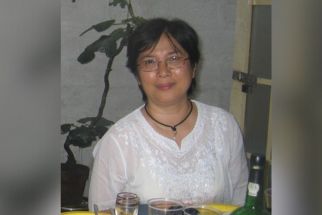6 get death for ’98 kidnap
December 11, 2003 | 12:00am
Six men, one of them a former police officer, were sentenced to death yesterday by a Manila regional trial court for kidnapping two Filipino-Chinese teenage sisters and their driver five years ago.
The verdict came days after President Arroyo, under pressure to curb a resurgence of kidnap-for-ransom cases, lifted a moratorium on executions.
Former Palawan policeman Carlos Ruiz and his co-accused Nestor Boyonas, Rosalino Demelletes, Dick Esrael, Ramil Olivar and Joel Ruiz were convicted of kidnapping Mary Grace Yao and her younger sister Michelle in front of their school in Manila on Dec. 10, 1998. The kidnappers also snatched their driver, Tirzo Barizo.
The Yao sisters were 18 and 16 years old, respectively, at the time.
"The prosecution was able to prove beyond reasonable doubt that in December 1998, accused kidnapped the Yao sisters and their driver for extorting ransom," judge Teresa Soriaso said in her 25-page decision.
"The law has made it inevitable under the circumstances of the case that the accused face the supreme penalty of death." Under the law, the case is automatically sent to the Supreme Court for review.
Court records showed the victims were abducted on the morning of Dec. 10, 1998, while on their way to school in Manila.
Their car was blocked by armed men in a car when they reached Immaculate Concepcion Academy in Tondo.
A van blocked their car from the side before Barizo could maneuver and escape. One of the kidnappers then commandeered their car and the victims were taken to a resort in the coastal town of Calatagan, Batangas, and held for eight days.
The kidnappers initially demanded a P30 million ransom but agreed on P1 million when told by the victims’ mother, Exaltacion Yao, that she could not raise that much money.
They threatened to kill the children and chop up their bodies.
A week later, on Dec. 17, however, the victims’ mother said she still had trouble raising the money, forcing the kidnappers to lower the ransom to half a million pesos. The payoff was supposed to be made that day in a church in Marikina City.
The following day, agents of the defunct Presidential Anti-Organized Crime Task Force swooped down on the kidnappers’ hideout, killing two suspects in a shootout — a certain Sonny, said to be a police officer, and Bong Crisostomo. The others were arrested.
The Yao sisters and their driver were rescued unharmed.
Anti-crime activist Teresita Ang-See said she called the police after Exaltacion Yao’s sister sought her help.
"We are very happy. This case shows that evil does not triumph. We have to commend the family for their cooperation despite all the threats they received during the trial," said Ang-See, spokeswoman for the watchdog group Citizens Action Against Crime.
It (verdict) showed that not everybody can get away with crime, she said. "All you criminals, if you’re planning to kidnap someone, you won’t always be lucky."
Ang-See called on kidnap victims to cooperate with authorities, saying it was necessary in order to curb the rash of kidnappings which seems to have become a cottage industry.
The defendants — who gave an alibi for their defense — showed no remorse as the sentence was handed down.
Soriaso, however, said their defense was weak, pointing out that the kidnap victims gave very detailed testimonies and positively identified their kidnappers.
Last week, Mrs. Arroyo lifted the moratorium on executions under pressure from a public outraged by the recent surge of kidnappings.
Executions are carried out by lethal injection.
In September last year, Mrs. Arroyo indefinitely suspended executions until Congress decides on whether or not to abolish the death penalty.
The deferment came a day after 100 congressmen crossed party lines and passed a resolution urging the President to suspend executions while they deliberate a proposal to abolish capital punishment.
The law can only be repealed if both the House of Representatives and the Senate arrive at a consensus.
Angered by the surge of abductions, the influential Chinese-Filipino community has demanded a resumption of executions and threatened not to support Mrs. Arroyo’s 2004 presidential bid if she refused.
Earlier, Mrs. Arroyo said the moratorium would stay, arguing that capital punishment failed to deter heinous crimes, including kidnapping.
Kidnap gangs often prey on Chinese-Filipinos, who are perceived to be wealthier and less likely to report incidents to the police.
Filipinos are divided on the death penalty issue, with supporters saying it has become necessary amid rising criminality.
Opponents, including leaders of the Roman Catholic Church and human rights groups, argue that the death penalty has not curbed crime and claim that more efficient law enforcement is the solution.
The death penalty, abolished in the 1987 Constitution, was restored in 1994 for heinous crimes such as rape, kidnap-for-ransom, murder and drug trafficking.
More than 1,700 people have been sentenced to death since then.
Seven convicts have been executed so far. President Joseph Estrada ordered an indefinite freeze on executions in 2000 in observance of the Catholic church’s Jubilee Year.
Mrs. Arroyo continued the moratorium after she took over the presidency.
The verdict came days after President Arroyo, under pressure to curb a resurgence of kidnap-for-ransom cases, lifted a moratorium on executions.
Former Palawan policeman Carlos Ruiz and his co-accused Nestor Boyonas, Rosalino Demelletes, Dick Esrael, Ramil Olivar and Joel Ruiz were convicted of kidnapping Mary Grace Yao and her younger sister Michelle in front of their school in Manila on Dec. 10, 1998. The kidnappers also snatched their driver, Tirzo Barizo.
The Yao sisters were 18 and 16 years old, respectively, at the time.
"The prosecution was able to prove beyond reasonable doubt that in December 1998, accused kidnapped the Yao sisters and their driver for extorting ransom," judge Teresa Soriaso said in her 25-page decision.
"The law has made it inevitable under the circumstances of the case that the accused face the supreme penalty of death." Under the law, the case is automatically sent to the Supreme Court for review.
Court records showed the victims were abducted on the morning of Dec. 10, 1998, while on their way to school in Manila.
Their car was blocked by armed men in a car when they reached Immaculate Concepcion Academy in Tondo.
A van blocked their car from the side before Barizo could maneuver and escape. One of the kidnappers then commandeered their car and the victims were taken to a resort in the coastal town of Calatagan, Batangas, and held for eight days.
The kidnappers initially demanded a P30 million ransom but agreed on P1 million when told by the victims’ mother, Exaltacion Yao, that she could not raise that much money.
They threatened to kill the children and chop up their bodies.
A week later, on Dec. 17, however, the victims’ mother said she still had trouble raising the money, forcing the kidnappers to lower the ransom to half a million pesos. The payoff was supposed to be made that day in a church in Marikina City.
The following day, agents of the defunct Presidential Anti-Organized Crime Task Force swooped down on the kidnappers’ hideout, killing two suspects in a shootout — a certain Sonny, said to be a police officer, and Bong Crisostomo. The others were arrested.
The Yao sisters and their driver were rescued unharmed.
Anti-crime activist Teresita Ang-See said she called the police after Exaltacion Yao’s sister sought her help.
"We are very happy. This case shows that evil does not triumph. We have to commend the family for their cooperation despite all the threats they received during the trial," said Ang-See, spokeswoman for the watchdog group Citizens Action Against Crime.
It (verdict) showed that not everybody can get away with crime, she said. "All you criminals, if you’re planning to kidnap someone, you won’t always be lucky."
Ang-See called on kidnap victims to cooperate with authorities, saying it was necessary in order to curb the rash of kidnappings which seems to have become a cottage industry.
The defendants — who gave an alibi for their defense — showed no remorse as the sentence was handed down.
Soriaso, however, said their defense was weak, pointing out that the kidnap victims gave very detailed testimonies and positively identified their kidnappers.
Last week, Mrs. Arroyo lifted the moratorium on executions under pressure from a public outraged by the recent surge of kidnappings.
Executions are carried out by lethal injection.
In September last year, Mrs. Arroyo indefinitely suspended executions until Congress decides on whether or not to abolish the death penalty.
The deferment came a day after 100 congressmen crossed party lines and passed a resolution urging the President to suspend executions while they deliberate a proposal to abolish capital punishment.
The law can only be repealed if both the House of Representatives and the Senate arrive at a consensus.
Angered by the surge of abductions, the influential Chinese-Filipino community has demanded a resumption of executions and threatened not to support Mrs. Arroyo’s 2004 presidential bid if she refused.
Earlier, Mrs. Arroyo said the moratorium would stay, arguing that capital punishment failed to deter heinous crimes, including kidnapping.
Kidnap gangs often prey on Chinese-Filipinos, who are perceived to be wealthier and less likely to report incidents to the police.
Filipinos are divided on the death penalty issue, with supporters saying it has become necessary amid rising criminality.
Opponents, including leaders of the Roman Catholic Church and human rights groups, argue that the death penalty has not curbed crime and claim that more efficient law enforcement is the solution.
The death penalty, abolished in the 1987 Constitution, was restored in 1994 for heinous crimes such as rape, kidnap-for-ransom, murder and drug trafficking.
More than 1,700 people have been sentenced to death since then.
Seven convicts have been executed so far. President Joseph Estrada ordered an indefinite freeze on executions in 2000 in observance of the Catholic church’s Jubilee Year.
Mrs. Arroyo continued the moratorium after she took over the presidency.
BrandSpace Articles
<
>
- Latest
- Trending
Trending
Latest
Trending
Latest
Recommended





























